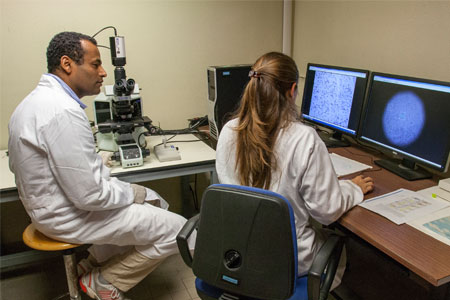- Authors:
-
Górska, A; Canziani, L M; Rinaldi, E; Pana, Z D; Beale, S; Bai, F; Boxma-de Klerk, B M; de Bruijn, S; Donà, D; Ekkelenkamp, M B; Incardona, F; Mallon, P; Marchetti, G C; Puhan, M; Riva, A; Simensen, V C; Vaillant, M; van der Zalm, M M; van Kuijk, S M J; van Wingerden, S; Judd, A; Tacconelli, E; Peñalvo, J L
- Title:
-
Learning from Post COVID-19 condition for epidemic preparedness: a variable catalogue for future Post-Acute Infection Syndromes
- Year:
-
2025
- Type of item:
-
Articolo in Rivista
- Tipologia ANVUR:
- Articolo su rivista
- Language:
-
Inglese
- Referee:
-
No
- Name of journal:
- Clinical Microbiology and Infection
- ISSN of journal:
- 1198-743X
- N° Volume:
-
31
- Number or Folder:
-
3
- Page numbers:
-
380-388
- Keyword:
-
Long COVID; Pandemic Preparedness; Post-Acute Infection Syndrome; Post-COVID-19 Condition; Prospective clinical studies; Standardization; eCRF
- Short description of contents:
- Scope: The emergence of Post-COVID-19 Condition (PCC) following SARS-CoV-2 infection underscores the critical need for preparedness in addressing future Post-Acute Infection Syndromes (PAIS), particularly those linked to epidemic outbreaks. The lack of standardized clinical and epidemiological data during the COVID-19 pandemic has significantly hindered timely diagnosis and effective treatment of PCC, highlighting the necessity of pre-emptively standardizing data collection in clinical studies to better define and manage future PAIS. In response, the Cohort Coordination Board (CCB), a consortium of European-funded COVID-19 research projects, has reviewed data from PCC studies conducted by its members. This paper leverages the CCB's expertise to propose a standardized catalogue of variables, informed by the lessons learned during the pandemic, intended for immediate use in the design of future observational studies and clinical trials for emerging infections of epidemic potential. Recommendations: The early implementation of standardized data collection, facilitated by the PAIS data catalogue, is essential for accelerating the identification and management of PAIS in future epidemics. This approach will enable more precise syndrome definitions, expedite diagnostic processes, and optimize treatment strategies, while also supporting long-term follow-up of affected individuals. The availability of harmonized data collection protocols will enhance preparedness across European and international cohort studies, and trials enabling a prompt and coordinated response, as well as more efficient resource allocation, in the event of emerging infections and associated PAIS.
- Note:
- Epub 2024 Dec 9
- Product ID:
-
143427
- Handle IRIS:
-
11562/1147654
- Last Modified:
-
March 22, 2025
- Bibliographic citation:
-
Górska, A; Canziani, L M; Rinaldi, E; Pana, Z D; Beale, S; Bai, F; Boxma-de Klerk, B M; de Bruijn, S; Donà, D; Ekkelenkamp, M B; Incardona, F; Mallon, P; Marchetti, G C; Puhan, M; Riva, A; Simensen, V C; Vaillant, M; van der Zalm, M M; van Kuijk, S M J; van Wingerden, S; Judd, A; Tacconelli, E; Peñalvo, J L,
Learning from Post COVID-19 condition for epidemic preparedness: a variable catalogue for future Post-Acute Infection Syndromes
«Clinical Microbiology and Infection»
, vol.
31
, n.
3
,
2025
,
pp. 380-388
Consulta la scheda completa presente nel
repository istituzionale della Ricerca di Ateneo 








